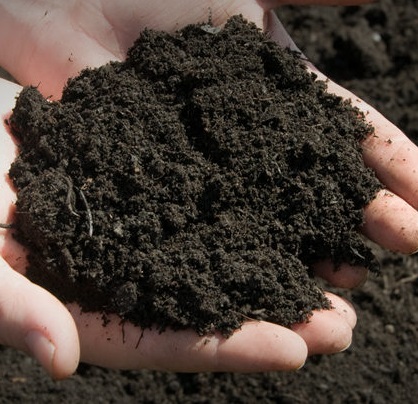No products in the cart.

Soil is much more than the ground beneath our feet — it’s a living, breathing foundation for every garden, flower bed, or landscaping project. When we talk about topsoil, we’re talking about a complex, life-sustaining layer that holds the key to healthy plant growth. Here, we explore what makes good topsoil, why weed seeds aren’t always bad, and how we craft our Topsoil blends for long-term soil health.
What Makes a Good Topsoil?
At Landscape Depot, we go to considerable lengths to ensure that only high-quality topsoil is used in our screened mixes and blends. That means:
- No pernicious perennial weed fragments
- No subsoil fillers pretending to be the real deal
- A texture and structure that promotes healthy root growth
However, one thing we don’t remove — and actually can’t — is weed seed.
Surprised? Here’s why…
Weed Seeds = Fertility?
It’s worth noting that the presence of annual weed seeds is actually a sign that the soil is both fertile and alive. Seeds from annual weeds are an indicator of good biological activity and an intact soil ecosystem. And no — we don’t sterilize soil, because sterilization destroys much more than just weeds.
Soil sterilization techniques used in the past (steam, heat, chemical gases) may have removed pests and weed seeds temporarily, but they also:
- Destroyed beneficial bacteria and fungi
- Reduced soil biodiversity
- Led to long-term issues like pest and disease resistance
- Were environmentally unsustainable
That’s why we don’t — and won’t — use sterilized soil.
Why Are Small Stones in Screened Topsoil?
- Natural Components of Soil –Topsoil is a naturally occurring material composed of:
- Mineral particles (sand, silt, clay)
- Organic matter
- Air and water spaces
- And yes — small stones and grit
When topsoil is screened, larger debris like roots, clumps, and big rocks are removed, but fine gravel and small stones are left behind. This is intentional and within horticultural standards.
Benefits of Small Stones in Topsoil
- Improved Drainage
Small stones create air pockets in the soil, which helps:
- Water to move more freely
- Prevent root rot in water-sensitive plants
- Soil Structure Stability
They act as a natural scaffold, preventing:
- Soil compaction
- Collapse of structure after rainfall
- Thermal Regulation
Stones can retain and slowly release heat, which may help with:
- Early-season warming
- Root zone temperature stability
Green Compost: The Secret Ingredient
One of the key components in our Pro-Gro mix is green compost. This rich, organic material:
- Increases fertility and microbial life
- Improves water retention
- Enhances soil structure
Even though screening is necessary for convenience and usability (especially in raised beds and landscaping), it can disrupt microbial life temporarily. That’s why we carefully rebalance our mixes with compost, sand blends, and organic matter, ensuring the soil remains open, aerated, and biologically active.
Our formulations are guided by agronomists and experienced horticulturists to support long-term soil vitality.
Not All Topsoil Is Equal!
Here’s a critical reminder: Just because a screened soil looks good doesn’t mean it is.
Some so-called “topsoils” may:
- Contain perennial weed roots or plant fragments
- Be made from subsoil, which lacks nutrients
- Lack organic matter, causing poor structure and drainage
Soil Management: A Living System
Think of your soil like a battery-powered radio — eventually, the energy runs out. Soil in a raised bed or container needs ongoing care, including:
- Mulching with fine or composted bark (80mm depth recommended)
- Feeding with compost, manures, or organic granular fertilizers
- Water management and aeration
A well-maintained soil bed will keep your plants healthy and reduce weed pressure naturally.
A Few Fascinating Soil Facts
- A healthy topsoil is 50% air and water space
- Only 5% is organic matter — but that small percentage makes a huge difference
- The remaining 45% is mineral matter from parent rock
- It takes about 1,000 years to naturally form just 1 cm of topsoil
So next time you’re digging into your garden, remember you’re working with a resource that’s millennia in the making.
Final Thoughts:
Customers should be informed that some annual weed growth and small stones are normal, and even a sign of good soil. Setting this expectation not only builds trust, it also encourages healthy garden practices. With the right mulching and care, weed growth can be suppressed naturally — no harsh treatments required.
At Landscape Depot, we believe that good topsoil is the foundation of great gardens. And with the right care, and a deep respect for the soil’s natural processes, your garden will thrive season after season.


